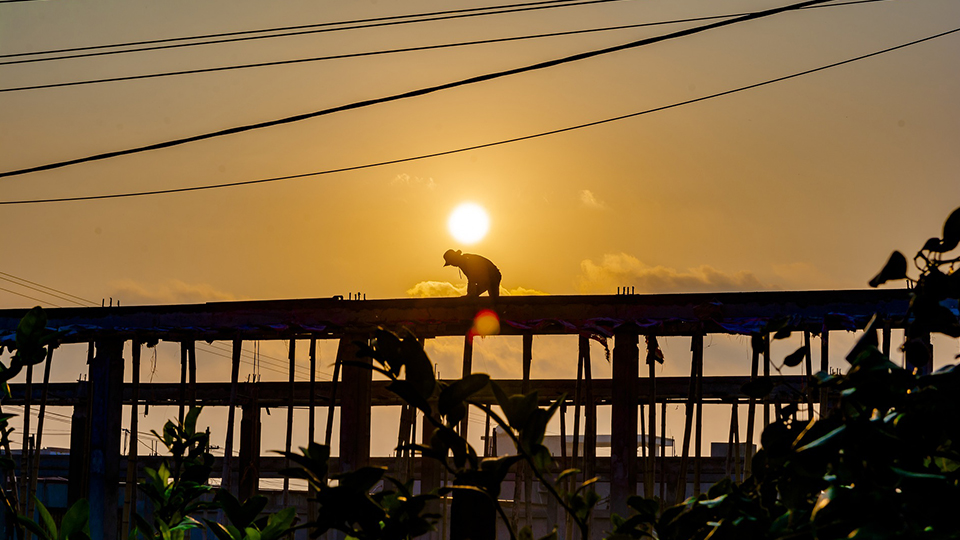Keeping cool and safe in a hotter and more humid Singapore
Published: 08 Dec 2020

Singapore’s climate is becoming warmer with the average ambient temperature rising each year, and this is not only observed in Singapore, but in many countries around the world – a phenomenon attributed to global warming and the urban heat island effect.
Our equatorial location means that people are chronically exposed to hot conditions all year round. This makes people who work outdoors particularly vulnerable to environmental heat due to their added internal heat production from physical exertion, which can be detrimental to health, well-being and work productivity. If workers cannot or do not take rest in relation to heat stress, accidents and serious health effects such as heat stroke death can occur.
In a new multi-disciplinary project titled Heat-Safe, Lead Principal Investigator (PI) Associate Professor Jason Lee, Deputy Director of the Human Potential Translational Research Programme at the NUS Yong Loo Lin School of Medicine (NUS Medicine); co-lead Professor Gerhard Schmitt, Director of the Singapore-ETH Centre (SEN); and their team of researchers seek to understand the complex threat that heat exposure pose to human health, well-being and work productivity in Singapore and other tropical countries; and to identify sustainable preventive policies and actions that can reduce these impacts.
Through the unique scope and scale of this multi-disciplinary project, the team will not only study the direct occupational heat exposures and impacts on health and productivity, but also gather and expand on existing literature and evidence concerning the broader health and well-being implications (e.g. prolonged discomfort, mental stress, familial relationships and special health concerns, such as pregnancy and fertility) that have yet to be comprehensively addressed in chronically heat-exposed countries such as Singapore, Vietnam and Cambodia.
Assoc Prof Jason Lee said, “Given our strategic location in the region, governmental will and technical expertise, Singapore is uniquely positioned to become a world leader in the development and deployment of heat-health management approaches, and comprehensive and coordinated approaches to the complex problems of extreme heat.”
This research is supported by the National Research Foundation, Prime Minister’s Office, Singapore under its Campus for Research Excellence and Technological Enterprise (CREATE) programme.
Learn more about Project Heat-Safe in this Straits Times article here.
|
Translational Research Programmes (TRPs)
The Human Potential Translational Research Programme (TRP) is one of nine new TRPs at NUS Medicine aimed at creating a strong and coherent scientific base to deliver impactful and meaningful research outcomes for the School and Singapore’s health system. Besides Human Potential, the other areas are Cancer, Cardiovascular Disease, Digital Medicine, Healthy Longevity, Immunology, Infectious Diseases, Precision Medicine and Synthetic Biology.
These nine key multi-disciplinary, health and disease-based focus areas will create greater synergies and collaboration between basic scientists and clinician scientists, strengthen programmatic research and deliver research outcomes to address clinically relevant issues and applications that are aligned to national priorities.
|
News Coverage
- “3-year Singapore-led study to look at impact of heat on migrant workers, soldiers and others”, The Straits Times, 8 December 2020
- “3-year study to look at impact of heat on health, productivity”, The Straits Times, 9 December 2020, pB5
- “Can SE Asian workers take the heat? Researchers tackle rising temperatures”, Thomson Reuters Foundation News, 13 January 2021
- “Can Southeast Asian workers take the heat? Researchers tackle rising temperatures”, TODAY, 17 January 2021

